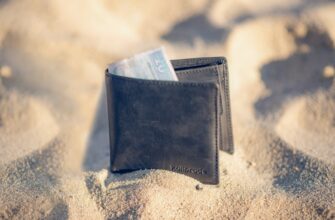- Why Recover Accounts Anonymously?
- Step 1: Prepare Anonymous Communication Channels
- Step 2: Initiate Standard Recovery Procedures Anonymously
- Step 3: Contact Support Without Revealing Identity
- Step 4: Verify Ownership Discreetly
- Step 5: Secure Recovered Accounts
- When Anonymous Recovery Isn’t Possible
- Frequently Asked Questions (FAQ)
- Final Security Reminders
Why Recover Accounts Anonymously?
In today’s digital landscape, privacy breaches and identity theft are rampant. Recovering accounts anonymously protects you from exposing personal data during vulnerable moments. Whether you’ve lost access to social media, email, or financial platforms, anonymous recovery prevents hackers from tracing your activity or exploiting recovery processes. This guide reveals legal, ethical methods to regain control without compromising your identity.
Step 1: Prepare Anonymous Communication Channels
- Use a VPN: Mask your IP address before starting recovery (e.g., ProtonVPN or Mullvad).
- Create a disposable email: Use services like Guerrilla Mail or Temp-Mail that don’t require registration.
- Anonymous browsers: Access recovery portals via Tor Browser to prevent tracking.
Step 2: Initiate Standard Recovery Procedures Anonymously
- Visit the platform’s login page through your secure browser
- Click “Forgot Password” or “Can’t Access Account”
- Select email/SMS recovery only if using your anonymous contact methods
- Never answer security questions revealing real personal details (e.g., mother’s maiden name)
Step 3: Contact Support Without Revealing Identity
If automated recovery fails:
- Submit support tickets through anonymous email
- Use vague language: “Unable to access account [ID] due to technical issues”
- Provide only mandatory verification details (e.g., partial username)
- Avoid phone verification – request email-only communication
Step 4: Verify Ownership Discreetly
Platforms may require proof of ownership. Anonymously provide:
- Account creation date/month (no exact dates)
- Last login location (state/country only)
- Partial transaction IDs (for financial accounts)
- Never share full names, addresses, or government IDs
Step 5: Secure Recovered Accounts
- Immediately enable two-factor authentication (2FA) via authenticator apps
- Remove all personal info from account profiles
- Revoke access to third-party apps
- Update to a strong password generated by a manager like KeePass
When Anonymous Recovery Isn’t Possible
For accounts requiring strict KYC (e.g., banking):
- Use official channels with minimal disclosure
- Consult legal anonymity services if privacy is critical
- Consider abandoning compromised accounts if risks outweigh benefits
Frequently Asked Questions (FAQ)
Q: Is anonymous account recovery legal?
A: Yes, unless used for illegal activities. Privacy protection is a legitimate right under GDPR/CCPA.
Q: Can I recover social media accounts anonymously?
A: Partially. Platforms like Facebook require some verification, but limit exposure using disposable emails and VPNs.
Q: What if I no longer have access to my recovery email?
A: Use platform-specific alternatives like backup codes or trusted contacts. Never reveal new personal details during the process.
Q: Do VPNs guarantee anonymity?
A: They significantly enhance privacy but combine with encrypted emails and secure browsers for maximum protection.
Q: How long does anonymous recovery take?
A: Typically 24-72 hours. Complex cases may require multiple support interactions.
Final Security Reminders
Anonymous recovery balances accessibility with privacy. Always prioritize platforms offering privacy-centric features like encrypted recovery options. Regularly audit account security settings and maintain anonymous recovery kits (disposable email + VPN) for emergencies. Remember: Your digital safety begins with proactive anonymity measures.








